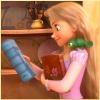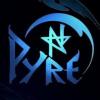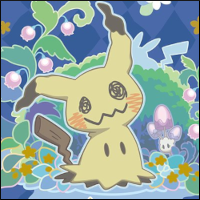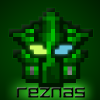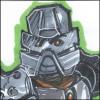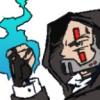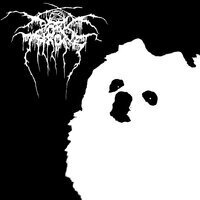Leaderboard
Popular Content
Showing content with the highest reputation on 04/19/2014 in all areas
-
Oops, sorry! Thanks for catching that. The last one's actually supposed to link here.4 points
-
3 points
-
NO YOU'RE WRONG I CAN'T LIKE WHATEVER I WANT YOU LOUT Takuma Nuva3 points
-
3 points
-
Personally I had the opposite problem with the pacing: I thought it moved way too fast, and as a consequence lost out on portraying moments that could have developed the characters more, or at least given them a more solid arc. To each their own, I suppose.2 points
-
Can't say I have any straight-up go-to advice for you. I spent a good year (off and on) working out the construction of the universe my book series is going to reside in. It's still changing too. I suppose the first thing I'd consider is how much each has to be represented. You say you have characters for about half these schools. Will the story work just fine if you only give those six a significant amount of focus. Will keeping the other half more in the background and/or less prominent hurt your story in any way? Will this be a series or will there be a sequel to explore these in more depth at a later date? Takuma Nuva2 points
-
Essays, Not Rants! 109: For Want of a Glass of Water Kurt Vonnegut once said, “every character should want something, even if it is only a glass of water.” This piece of advice functions as a very simple and straightforward way to ensure a character has some semblance of depth. What's important about a goal? A goal gives a character purpose and gives an audience a reason to invest. In Star Wars, Luke wants to leave Tatooine. In How I Met Your Mother, Ted wanted to meet the mother (or at least we thought he did). In Pirates of the Caribbean, Jack Sparrow wants his ship back. As viewers, we want characters to want something. It’s dull if a character just exists with no want (i.e. Ted for many of the later seasons of Mother). Chuck begins with a very complacent Chuck who’s just floating through life. Receiving the Intersect gives him a purpose too. Characters then have to do something about it. Solid Snake crawls trough a microwave chamber in Metal Gear Solid 4 to stop the Patriots. Katniss famously volunteers as tribute. Taking a proactive role about their goals is what separates Katniss from Bella Swan. The former may want Edward and/or Jacob, but she just sits around; Katniss actively fights for not only her life, but for those of her friends. It’s not enough for a character to have a goal, they have to do something about it. Jack Sparrow spending two hours talking about how much he wants the Black Pearl would be a terribly boring movie. Those are the fundamentals of having a potentially interesting character. Following that we need conflict. There has to be something stopping the character from getting what they want. Harry wants to be a wizard with the sense of family and acceptance it entails, Voldemort wants him dead. That conflict of interest fills seven books. This so called ‘external conflict’ as your High School English teacher called it can be far more subtle. In The Last of Us, Joel’s goal becomes to protect Ellie whereas her goal is to make her life count. For the most part the goals don’t interfere, but when they do we get some magnificent, quiet drama. Additionally, having the protagonist conflicted makes them that much more interesting as we get to watch them change or resist it. Columbus in Zombieland already has the zombies interfering with his goal of staying alive. His emergent want to win Wichita’s heart, though, also screws with his sense of self-preservation. Suddenly, Columbus has to make a choice: what does he value more, his life or Wichita? A conflict like this forces the character to change. Columbus has always been a wimp, someone who’d rather cower than take action. His interactions with Wichita force him to nut up and grow. But what if she doesn’t get the water? Sometimes the most interesting thing to happen in a story is for the character to not achieve their goal. Tom’s goal in (500) Days of Summer is to win Summer’s heart, then to stay with Summer, and then to win her back. It’s his proverbial glass of water and what the film centers on. Tom, however, doesn’t end up with Summer. The complete destruction of his goal forces him to reassess everything and, eventually, gets him back on track to doing what he wants in life. Losing the goal he thinks he wanted reveals what he really wanted. Like a conflicted desire, it gives added layers to his character. Conversely, achieving a goal may crush the character. Zero Dark Thirty ends with Bin Laden dead and Maya Lambert successful. She’s achieved her goal, but her goal was all consuming. The film leaves her suddenly aimless and without purpose, adding a sense of somber hollowness to it all. Just as giving a desultory character a goal yields interest, so does robbing a purposeful character of hers. Wants and goals fuel stories. Look at Game of Thrones, everyone wants something, almost always at the expense of someone else. These goals breed conflict and add depth to characters. Just make it more than a glass of water.1 point
-
Recap 03: Insomnia Killed We’re back again. It’s been three weeks already, gosh. This week was certainly an interesting one. My brain is blanking right now, but I’m sure you’re reading an entry lengthier than the norm right now regardless. So... this week. I have to work alongside one of my bosses for our Art Program, but there has been very little communication outside of the classes themselves, and on Monday I ended up having to figure out a way to make coloring with pastels last an hour with three different classes, filled with increasingly older and more skilled kids. It was a nightmare. This Monday we’re doing manga... I don’t even read manga. The sooner we get to the weeks where we focus on Shepard Fairey and Bill Watterson, the better. I had my first (and probably last) real field trip for this year on Wednesday; we went to the Ontario Science Center and were easily the oldest group there. The presentation we saw was dreadfully boring, the imax video we watched I had already seen, and I was too familiar with the building itself to be suffering déjà vu, so I am currently stuck on a hunt for information to determine when exactly I was last there. The trip itself was terrible. In addition to my complaints above, every single bit of service I received while on the trip was terrible. At Subway, the person behind the counter got mad at me for using a Subway gift card; at Tim Hortons, both the person behind the counter and the manager tried to tell me that they didn’t serve lattes, and in the science center (especially at the theater portion), the employees were all snooty. But to top it all off, when I was paying for my lunch in the science center’s way overpriced cafeteria, some dude that had at least two feet of height on me came over and threatened me for trying to “chat up his girlfriend”, who was apparently the super old lady (okay, maybe not that old but still) behind the counter. I guess purchasing food counts as asking for a date? If that was true, I could have a million different people going to prom with me. I almost punched him, but I decided not to because I didn’t want to ruin my pizza. Also, he was three times my size, and I didn’t really want to find out if there would be any benefits to him beating me to oblivion after I physically instigated a fight. On the bright side, while I suffered an entirely sleepless night on Tuesday, on Wednesday (once I was able to stop fuming, which was actually easy enough because I was exhausted at that point) I slept very well, and I have slept easily for the past two nights since. I have killed the insomnia! +1 points. I’m about 90% certain that I’ll be receiving my mid-term marks on Tuesday (technically the reports go home Friday, but I’ll just ask the teachers because why not), so we’ll see how that goes. I know at last count I was tied with someone for the highest mark in English (ironically, the girl I asked to prom), and on the IB scale I had a Level 6. I’m hoping that I managed to bump my mark up to a Level 7, but in the most probable event that I did not, I’ll settle for taking the lead in marks. If I’ve fallen behind I’ll cry a little, since I’ve never actually been at the top of a class before. Actually, I probably won’t cry. I’ll just sulk for a couple of hours. Aside from that, the biggest part of this week was working on Bionicle Mafia Uprising. While you all would either jump to “I don’t care about your silly story” or “Didn’t you just post one chapter, and that was it”, I will mention here that there are three different things in the pipeline for the series that are being worked on; this is alongside what I’m doing so far for Book 2, and a short story that I will release later this year that must be re-read and improved to perfection. That’s it for this week. I’m hoping eventually something that’s actually emotionally significant will happen, because obviously those are the most interesting to read. All I’m doing right now is complaining about not fighting guys that would beat me up if I tried. What a shame. But at least I have more points! Point Total: 21 point
-
Where is my machine gun? Much better. * Please note that machine guns are not included as standard hardware in Chima Online. Please consult this entry if you wish to acquire one for yourself. No computers were harmed in the making of this entry. Anyway. Time delays. Are very annoying when playing games. Period. To my knowledge, this wasn't a component of older Lego games. I wasn't around for the Drome-Junkbot days, but even Bionicle games never included a time delay component going on. This is why Bionicle games in my mind are still the best Lego games generally (after all, that category included such glories as MNOG and Glatorian Arena 3, despite such bombs as MNOG II and Matoran Escape, but whatever.) Throughout Bionicle's entire run, zero games required you to wait for weapons/armor to be manufactured so you could improve to get over the next level. Except for the dreaded MLN, which I believe started this trend. For those who don't remember/weren't around, MLN was entirely composed of this stuff. You had to wait for resources to grow on modules, and for people to click on your page, and for your own clicks to "regrow" so you could click your own page and cheat. The best part of that system were the "campaigns" which usually had shorter wait times than the actual MLN game, which was hard. (Especially the Bionicle campaign, which was shorter on wait and longer on story and scavenger hunt components.) The first group of Hero Factory games failed to succumb to this flaw, I think. It's been forever since I've played Von Nebula/Ordeal of Fire. In any case, the wait times were largely unnoticeable. They were very much present in the Breakout game, but usually you could earn enough in-game points to bypass them. However, these upgrades were to get into special side areas to get more loot, and not really part of the main game. And the main game was so amazing that I just ignored it for the most part - off to Koolix IV to do cool moves on my bike and stick my tongue out at Speeda's klutzy riding. Still, it's probably to blame for why I eventually got bored and stopped playing - I couldn't "upgrade into" the exclusive areas fast enough, thus removing my motive to continue playing. Chima online (shown above) suffers from this among the worst. It's all well and good until you can't win a battle in-game, and have to wait several hours (like 4) to increase your armor, weapons, etc so you can actually win. This means that you can't just sit down and play it - you play, and then stop and wait, and then play some more, and then stop and wait. It is frustrating.* Of course, you can bypass that with golden bricks (i.e. money). If you're not a member, you barely ever earn these - 1 brick per level up, and 1 brick if you fill up the Social Reward Bar. The latter is on a time delay like everything else is! Blargh frustration. You might also be able to lessen your wait by earning more studs, but you barely ever have those either, since you're constantly spending them on things to heal you in battle anyway, so no good. Playing as a non-member is a good way to shorten your sanity level IMO. It makes little sense to spend money on a game that is only 25 levels long though. And all of this need not be so. Non-members are already limited by outpost size (barely adequate), lack of golden bricks (required to open mystery boxes and purchase Chi), what missions they can do, what outpost buildings they can build, and even what items that they can collect. I think I would have enough motive to become a member from just that - the member exclusives are pretty cool. They just really need more quests and levels, seeing as if I was a member I would likely scrap this game in a couple of hours, and I'm a terrible gamer. Having to wait hours to upgrade armor and weapons just comes across as an additional slap in the face. I don't know what they were trying to do - mimic real life? - but it just comes across as a grab for money and an unwitting homage to the MLN. It also decreases my involvement in the game, seeing as I have to wait. (Impatience, that I have at times. ) One could conclude that I don't like the RPG game style in general, but that's not really true - I do enjoy playing a character and smashing enemies grind style, etc. Personally I was more of a fan of LU - from what I understand from the free-to-play and bonesiii's slideshow, no wait times were involved and it could actually keep you engaged. I would have bought it if I could but sadly could not. And it, you know, failed. So far I haven't heard tales of the Chima RPG's smashing success though, and the wait time thing might be the reason why. And really, why must that game print all those numbers on the screen so you stare at them? Even Breakout didn't do that, yeesh. *if anyone wanted to know why I'm grouchy this week, you now know why.1 point
-
1 point
-
I think the movie needs to be drastically changed story-wise to accommodate most of those songs, particularly due to how completely out of character the girls are in them. "Life's Too Short" is especially problematic in that regard, though I too would love to hear Menzel and Bell perform it. HOWEVER I do think that some version of "Life's Too Short (Reprise)" could have made it into the film. It would have strengthened Elsa's arc a little bit and provided a much needed breather to slow the pace down. (And it's a better song than "Fixer Upper" anyway.)1 point
-
MY LITTLE PONY HAS ONLY GIRL PONIES WHAT IS THIS MEN ARE BEING DISCRIMINATED AGAINST. ALSO THE LEGO MOVIE DOESN'T NEED MORE WOMEN; IT HAS ENOUGH. If you agree with this, go read this post. If you don't agree with this, then good job! Go read this post instead. If you're confused, go read this post. If none of the above apply to you, then this post is the one for you. #tylerbomaye1 point
-
I'm honestly not sure why so many people liked it. I thought it was awful. *shrugs*1 point
-
1 point
-
MATANUYAMAJAI - THE LEGEND Ivaha vahai, Mata Nui ini-wahi uvoya; Nohi-artakhai akoa, Matoran roya, karaya. In the time before time, The Great Spirit descended from the heavens, Carrying us, the ones called the Matoran, To this island paradise... - Oa kaitura, maitura; Mata Nui i-Haua-Ngavongu, Kaita, Maita, Vaita, Oai takaya. We were separate and without purpose, So the Great Spirit illuminated us With the Three Virtues: Unity, Duty, and Destiny... -- Oa i-Hau kouya; Ihahla, oa Mata Nui Inohi-reahi rokha; Nga i’Amana rohi. We embraced these gifts, And in gratitude, We named our island home Mata Nui, After the Great Spirit himself... -- Oa-hahli rhourakha: Mata Nui-ro, nga Makuta, Suva vorakha, akai guurakha. Makuta ikouka Mata Nui zya. But our happiness was not to last. Mata Nui's brother, the Makuta, Was jealous of these honors and betrayed him. Makuta cast a spell over Mata Nui, who fell into a deep slumber... -- Makutaka nohi maya, Itaua bo-wahi jutlamoya, Avotaka kokha, Hau-raga ceuraya. Makuta's power dominated the land, As fields withered away, Sunlight grew cold, And ancient values were forgotten... -- This was originally posted via tumblr over the space of a few weeks, and now that it's complete, I thought I'd share it here. It's a rough translation of the Legend of Mata Nui, and if you've been following along with the last three posts, you may recognize a few things. I'm considering posting a full gloss once I find the time. Currently, a continuation is in progress: The Prophecy (of the Toa), the first few passages of which have already found their way online. Enjoy.1 point
-
No, but we had the Kohlii Stick quest, which was infinitely worse. =P Especially since Nokama would always show up RIGHT AS YOU WERE BRINGING THE STICK -1 point
-
1 point
-
Pfffft, I don't care, you can disagree with me as much as you like, and you can like whatever you want. =P Heck, the fact that we can be so different is just one of the things that makes us so great to begin with. ^^ (I keep seeing this phrase being said on here, and I just thought it would be nice if someone actually said this. So... yeah I guess that's all I wanted to say) Well, I suppose there is one thing I will fight you over... GET OFF MY LAWN! ~Tekulo <31 point
-
1 point
-
NO YOU ARE THE WRONG! YOU CAN FORM YOUR OWN OPINIONS FREE FROM PEER PRESSURE!1 point
-
1 point
-
@Necro: There's no reason for me to go through and reply to each point you made - I agree with you and it was very enlightening to get your perspective on these things. All I was trying to say is that some of the gags in the show have their roots in stereotypes. I wasn't trying to make a judgement on whether or not they were offensive. @HH: Thank you! The idea that this is relevant to every society isn't true, and I believe that there is a very troubling tendency to elevate the problems in our culture over more serious worldwide issues. That doesn't mean that issues such as representation aren't important, per se ... just that it's always good to keep things in perspective.1 point
-
Alright guys, that's enough. If anyone wants to further discuss Tyler's comment, they can do so in the blog entry he has provided. Entry locked.1 point
-
I'm disappointed. I was expecting an epic rock ballad with a guitar-smashing conclusion.1 point
-
Here shall remain a compilation of the best game-related quotes that I discover from the Games & Trivia forum (since that is the game forum I spend the most time in). I shall, of course, bump this entry whenever I find a suitable number of new quotes. Please note that if need be, I shall shamelessly steal these quotes from the signatures of those who discovered them first. Let us begin! From Bionifight Ultimate1 point
-
1 point
-
1 point
-
Agnes's final smash is where she awakens all four crystals at once and the pillar of light appears on the battlefield and sends everyone flying to their dooms. Nice. (And it starts with her yelling "Unacceptable!")1 point
-
The Arena Method of Writing Today the Bones Blog brings you the writing method that not only avoids writer's block, but creates a realistic, believable, and enjoyable plotline and story that is fun both for the reader to read and the writer to write. The Arena Method is my term for what I consider the perfect way to write a story. GregF has commented that this basic idea is how he writes Bionicle story -- this is my take on it. I'll introduce the concept, list the rules of the method as I see them, and then walk you through the steps of the method. If this entry strikes you as an impenetrable wall of text, skip down to the Summary section at the end. Bold is used here somewhat for important points as usual but mostly for organization purposes. Enjoy! Introduction In the Arena Method of writing, as author your job is to develop characters, settings, cool mysteries, artifacts, stuff in general, etc., figure out characters' various goals and plans, and choose an inciting incident. After that point, your only job is to devote time thinking, brainstorming, and writing down what would logically happen from there. Your job is to sort of set up a domino effect, and then knock over the first domino -- except in this arena of cause and effect, you as author do not know what will happen! Not for sure, anyways. Put simply, you build an "arena", fill it with characters, and then you allow the characters to drive the plot forward. With the arena method, the story writes itself! Before I tell you more about what is it, what is the Arena Method NOT? Tedious outlines. Plot devices. Killing off characters. Writer's block. Criticisms of unrealism. Forcing the story. Pointless stories. Meaninglessness. Lack of characterization. Just a bunch of explosions. Tedious writing process. Tedious rewriting process. Tediousness in general. Predictable endings. Boring beginnings. Lack of suspense. No fun involved. Mythbusters busting what you said happened. If you use the Arena method correctly, none of the above will have anything to do with your story. Nobody could fairly accuse you of killing off a character, for example, because you didn't control the events of the story. Well, okay, the mythbusters still might bust what you said happened, but that would be a high achievement in and of itself. :-P Most importantly, the Arena Method does NOT involve the author writing towards an ending heshe already thought up. Ideally, the author will be just in the dark about how the story ends as the reader will be when reading. This is the secret to a fun and streamlined writing process. When you as author already know what you'll end your story with, it's much harder to motivate your mind to do the actual work needed to get there. Writer's Block is perhaps the worst symptom of that mistaken idea -- you either aren't sure how to get to the end you wanted, or you are worrying too much on trying to plan your end anyways. Now, to be clear, I do often write down theories as to how the story will probably end. But the key here is that they are only theories. If, in the course of writing, something else would logically happen, then that is what MUST happen. Ground Rules: 1) Make an "Author's Guide" that sets up the arena your story will play out in. Take notes about the world and characters before you start writing. Aim for cool and interesting. Keep your notes concise, simple, easy to reference later. Review your notes often in your mind before you begin writing and as you write. 2) Pick an inciting incident -- the first moment of trouble that pulls the trigger on the chain reaction that follows throughout the rest of your story. It doesn't have to be huge, and it might not necessarily be obvious right away why this moment is the trigger. But it must NOT be mere introduction to the world. It must introduce the conflict of the story, or the reader will not be engaged. 3) Begin the story immediately at the inciting incident. No ifs ands or buts about it -- your reader needs to know by the third paragraph -- first if you can -- that conflict has begun. And they should have a sense of what that conflict might be, too. This part might be the hardest in any method, as it is the most crucial. To use the sports analogy, this is when the game begins in your arena. There might be leadup and planning before this moment, but this is when the action really starts. 4) Whatever logically would happen from that point on, MUST happen. You MUST write down what your brain is telling you would happen. Not what you hope happens, not what you think the audience wants to read, but what WOULD happen. Believability is your goal, and this is how you get there. 5) NEVER do an info dump for the reader's sake. If you mention the fictional government of your world, don't launch into paragraph upon paragraph, or even two sentences, of explaining this government. It should be made clear naturally from the way the narration, dialogue, or thoughts flow. And if it isn't made immediately clear, it can always be expanded on eventually. You might think "but the reader will want to know what I'm talking about!" Yes -- but that is not the reader's top priority. Top priority is to enjoy what they're reading, and usually the only people that like to read textbook style explanations are the author himherself or writers of textbooks. :-P Readers want to learn about your arena the same way they would as if they were eavesdropping on a conversation -- they want to pick it up themselves. Now, this rule is a bit more flexible than the others. Later in the story sometimes it is okay to do this sparingly, and a few words of explanation might actually BE necessary anywhere. But by a few words I mean like three. 6) Avoid guiding the plot like the plague. In fairness, sometimes you might have an overall story arc that demands certain things happen, so you might have to guide the plot sometimes. The problem with this is, readers can usually tell. It's better to make sure your arena is already set up to make it likely to happen than to suddenly do something out of the blue to rescue your characters from a situation artificially. The cliche way to say this is to avoid Deus Ex Machina, the plot device where something or someone that wasn't introduced previously suddenly shows up to save the day. Doesn't mean a character can't show up to save another character, but only if it would realistically happen given the stage you've developed. Usually you want to make super sure you introduced such a character or whatever earlier on in the story so reader's won't see it as coming in out of the blue. For example, if a character has to be alive for a later story, then there should be a arena-based reason that the antagonists or whatnot are unlikely to kill them. Perhaps they need this person for some reason, or think they might in the future. Makuta has always avoided killing Matoran, for example, because he needs them as worshippers, and possibly now to live. 7) Do not outline. If you do, treat it only as a theory of what might happen or as notes on what the important characters are planning to have happen. Quality fiction should IMO work how real life does -- every single factor affects the flow of events. An outline cannot fairly account for all those factors. 8) Have a good understanding of causality. Cause and effect, psychology, weather patterns, fictional or real physics -- anything that deals with "how stuff works," if you will. 9) Finally, not an absolute rule, but try to focus on emotion in your story. Doesn't mean your story can't be about a life lesson, science fiction concept, cool power, complex machinations, etc. But emotion should be your top priority, as that engages the reader. Put another way, make sure that at all times, emotion is portrayed through whatever you have on the page. It might be logical debate between Vulcans, lol, but your primary aim should be to produce an emotional reaction in the reader that interests them, gives them motive to want to know what happens next. For example, Bionicle's story is primarily entertainment. It teaches moral values, but as a second priority to telling a fun story, because if you don't tell a fun story, nobody reads the story, and so nobody learns the moral values Bionicle teaches. Perhaps not everybody will "get it", but that's okay -- if you are engaging readers emotionally, at least some of them will get the more logic-based things you hope your story conveys. Besides, if you are letting the story flow truly as it causally would, the emotions you are focusing on will reinforce a true lesson, perhaps even one you didn't expect or know yourself before you started writing! The emotions will back it up, not distract from it, in other words. Also, keep in mind something I've often pointed out about logic -- ultimately, the basis of everything is emotion, not logic. Without the promise and attaining of positive feelings from learning some life lessons or some logical truth or some rational system you've developed for your story, whatever, there is no point to logic, or even indeed of existence. You have to want to know the truth before you can learn it. Likewise, readers have to want to know what happens next, or why, before they can learn that. If you don't believe me, know that I am speaking as a logician. This is not a put-down against logc, but rather an explanation of why logic, truth, existence etc. matter in the first place. The Process Before I begin, a little intro: What I usually do is use plain old Notepad (or even literal paper notes) to make my own sort of plain text BIONICLEsector01, if you will, about the settings, characters, etc. that will form the arena of my story. For my non-Bionicle series I've actually developed a website-like html guide database I edit and access in Frontpage, almost literally an encyclopedia, heh. Not everything in your guide will necessarily be used in the story -- just as not every inch of a sports arena will necessarily be covered in a game -- but it is all available for me the writer if I need it. Here is where the temptation to info dump might come in -- again, keep in mind that NOTHING in your notes necessarily has to be told to the reader. The vast majority of it can be shown anyways, and that's always more fun. A writing prof has clarified about that old "show, don't tell" thing -- sometimes if telling is shorter, you should tell instead of show. But if by imagery, dialogue, etc. you can "show" it, it's usually better. How I tell what is needed when is I ask myself which one will convey emotion better? Ex: if a character is against the current government system, a short (SHORT) explanation of it can possibly convey that emotion better. If they had a hand in making it thus are proud of it, or if they are unusually enthusiastic about it, same idea. But if it's just a fact of existence for the character, it's probably better just to let it come out in bits and pieces. And I don't necessarily follow this exact order. Sometimes a cool idea for a setting is what inspires a story; other times it's a cool character idea, or a cool conflict idea. Finally, note that I'm going to go into a lot of detail about the IDEAL way to use this method. But I rarely do all of this -- for example I rarely write out lengthy history notes for my characters. I just focus on taking the notes on the most interesting stuff. In other words, do as much or as little of this as you enjoy doing. If this part is getting tedious, it's probably because you're doing too much of it -- or your ideas aren't cool enough yet, so you need to rethink things. Step 1 -- Build the Arena Setting is key to any story. It sets the feel of a story, and that is 90% of what readers like most about any story. (Give or take. ) Now to be clear we are not talking about actual sports arenas. I'm talking about definition #4 here: You need to develop notes about the physical, cultural, emotional, and rational setting of your story (there might be more than these needed). 1) Physical -- that's fairly easy. The climate, land, plants, native animals (or non-native), and all other such aspects. In my style, which is Adventure Mystery, I aim for the coolest possible settings, that get as far away from the cliche as I can. But if you're writing a different style, you can just go with an existing setting or develop one very similar to Earth or the like (much fantasy does the latter). In Bionicle fanfics, you can go with an existing Bionicle location or make your own. 2) Cultural -- depending on the place, the culture will affect a ton about what that place looks like, what systems run it, etc. Buildings, roads, signage, decoration styles, symbols, etc. come from a culture. For example, just from that teaser images of 2009 on Bionicle.com, we know a lot about the culture of the characters that live there -- they are somewhat primitive but highly industrious. We know this from the cool flags made of simple materials, but obviously displaying expert craftsmanship, and the stone arena (punny!) that exhibits complex architecture and masonry, but is also made of "primitive" stone instead of some more complex material. Despite their lack of advanced technology, there is a sense of the work ethic, or something similar, being communicated to us through their creations. Note that this aspect of your setting plays to the physical, emotional, and rational. 3) Emotional -- this is incredibly important. Every place has its own emotional feeling that it causes beings to have when they see it, though it might not always be obvious or the same for each character. 2009 seems to display a sort of harsh but adventurous life, for example. We get a sense of the emotions of the characters from the setting. Star Wars for example has the "worn universe" look, cluing us in that the characters are somehow worn down emotionally themselves, perhaps in general a bit cynical, or overworked, underpaid, or something like that. Note that putting these things into words might be difficult, as this example shows, but you should probably try to in your notes. 4) Rational -- the beliefs, ways of thinking, knowledge, thoughts etc. of your characters and culture. For example, in the BP epic #4: Twisted Island that I am writing currently, the story takes place at this highly unusual location because the enemies judge it to be the ideal place for them to accomplish their goals. That is their logical analysis of the situation related to plot, and in this particular story, that is what decides the setting. Step 2 -- Populate the Arena Characters. A believable plot is driven by characters for the most part. Unless you're telling a dramatized story about a hurricane or the like, you have living people, animals, or whatever in your story. Characters have goals, beliefs, their own repertoire of traditions and habits and knowledge. They have their own strengths, they have their own weaknesses, and above all they (usually) have the ability to adapt. These things create conflict with other characters. These are the keys to a character. Appearance is minimal in importance, but it can and should reflect these in realistic ways, and of course the reader does need to feel like they "see" your character based on your description. But description is the last priority when it comes to what you as author need to establish before you begin the story. Here are the aspects of a character I try to focus on: 1) Basic personality. Comedic? Serious? Aloof? Outgoing? A mixture of these and more? The latter is most likely. A fairly complex personality is usually important to establish, as real people are rarely simple. I try to focus on conflict related to personality -- does one aspect of it clash with another? Or does their personality tend to clash with life? How? Etc. 2) Abilities, talents, skills, powers, etc. Their strengths. These are the things the character usually thinks define them. 3) Weaknesses. What character flaws, physical weaknesses, vulnerabilities to temptation, or other weaknesses do your characters have? These are the things that define your character in terms of the plot usually, because they create conflict. ALWAYS have at least a sense of this for every major character, and preferably the minor characters too. And even with good guys, the more of these you establish the better, as stories are all about conflict. To use the sports analogy again, how well each player performs will depend on both their strengths and weaknesses, and how these things jive with the situation. 4) Their basic history. This can be driven by, and also drive, their personality, depending on what you do with it. But you need to have characters who have memories in their heads. It's not enough just to write a personality into the page -- real people have a history. 5) Their goals. The biggest one that will drive your plot. What do they WANT? This is what drives real people's actions, after all. We never do anything that on some level we do not want, unless we have no choice. Your character might not achieve his or her goals, don't misunderstand -- but they have goals nonetheless. 6) Their plans. What have they already thought of, or prepared for, that they believe will lead them to their goals? These will often be rethought by the characters as the story unfolds, but they usually need to have a Plan A in place. And Plan Bs etc. too if they are smart enough. 7) Beliefs, traditions, habits, etc. Just various things that further define who they are. What's in their heads in terms of how they behave and why. 8) Knowledge. Or lack of it (ignorance). I tell Adventure Mystery, where trying to know more and having to go through radfun adventures to do so is the goal. I tend to have different characters or groups of characters who know more than others, and maybe who don't want to tell others. And with just about any type of story, this is true to some degree. Who knows what? 9) Appearance. Last priority, as I said. But you can convey emotional ideas about your character through appearance. Especially when you're dealing with clothing (or mask powers/shape or the like), as these are often chosen by the character. Step 3 -- Write the Rules If there is to be an arena with competitors inside, you also need rules -- what type of sport will be played in this arena? The analogy is flawed, as these rules are written by the characters most likely, not a rules board. :-P But the idea here is which aspects of the arena or characters MOST define what can happen? In other words, what are the most important elements of your story? Unless you're telling a Glatorian competition story (or the like :-P), not everything will be equal in importance. Something will be the central idea of your story, and other things will be nearly as important. The plot will center on these things, not just on the basic idea of different competitors with their own equal aspects. For example, in Twisted Island the basic rules are that the villains have brought good guys to an island where a zoo of the most dangerous creatures in the universe has been damaged, setting these creatures loose on Twisted Island. These characters are trapped there and in constant danger, and more than ever before, they must work to solve the mysteries of this place, or surviving and escaping will be impossible. Obviously, I have other "rules" or basic elements behind the mystery that are classified, too. As another example, another epic I'm planning for later centers around the highly mysterious goals of the enemies alone, having little to do with the location. The bad guys don't even have plans in that epic -- just a single overriding, all important goal that they exist to accomplish. Sort of like Bohrok, only even more obsessive. I center the story on that -- making it rule #1 -- because I judge the secret to be such a radcool idea (inspired by a fairly recent subject that was discussed a lot on BZP, actually) that I think will have a great "whoa" effect when it's revealed, and yet should be really fun to tease throughout the story. So what kind of "rules" am I talking about? Well, it can be extremely varied, but here are some basics that almost all stories need: 1) Protagonist -- main good guy, usually. Who will be THE main character of your story? You can have POV of other characters if you want to write that kind of story, but this is the one who primarily try to steer the plot in the best way. (Unless of course you are focusing on a bad character, but the idea is this is the person you focus on who needs to take on a challenge of some kind and overcome it.) Another note here -- avoid like the plague having a character who just reacts to things. They can react, but they should almost immediately take a proactive, "fighting for what I want" approach in your story, and they should keep this up throughout the whole story as much as authorially possible. Could be exceptions. 2) Character lesson -- I usually write down how I think the plot will change the character as a person by the end of it. In my style, the protagonist of every story is going through an important life lesson the hard way. By the end, they will likely learn from what they experienced and walk away a better, stronger person for it. (But not necessarily -- that will depend on if it WOULD logically happen. ) Not every style uses this, but my writing profs have always said that your character MUST change by the end of your story in some way, or you don't really have a story. One prof went so far as to say your stories should always be about the MOST important event in your character's entire life, the one event that they cannot possible walk away from without being changed. Some might object that they prefer a plot-based story style. But that is simply not possible with the Arena Method -- either the characters or the setting, and usually both, drive the plot. Just like in real life. 3) Antagonist -- this is THE engine of your plot. Stories center on conflict, and you can't have that without an antagonist. Again, they don't have to be villains, but in some way their goals must conflict the most with your protagonist. If you tell a story about a bad guy, good guys or other bad guys (or neutrals) might be your antagonist. Also note that you SHOULD pick a single individual to be your main antagonist. It doesn't always work out that way; sometimes there's a group enemy such as a swarm, but in general you need an enemy leader, or elite enemy, or an enemy that has something against your protagonist specifically -- something to set apart an individual. What I often do is work with enemy groups with a leader, as does Bionicle. Sometimes conflict with a group might span multiple stories, in which case the antagonist of each story will be different. For example, in Epic 1: The Sword is But the Focus, the infected Wkahnau giant burrowing Rahi is the antagonist. It's clear that some more intelligent hidden enemy tied a powerful artifact to it with a rope, and of course Makuta is controlling it, but it is the main enemy of this story. What the Wkahnau does for the 2001 Paracosmos Saga is open the mystery of the hidden enemy group. In Epic 2: Agents of Surrender, Lewa hunts down the hidden enemy, and eventually finds three of them, with a single one leading them. Throughout the story, it is clear that the hidden enemies in general are the antagonists. Only when Lewa finds these three do we have a particular "subleader" revealed as this story's main antagonist. And in the process by the end the secret top leader of the hidden enemy is hinted at. Then in Epic 3: Captain of Treason, both Kopaka and the hidden enemy leader Rathoa take turns being the protagonist and antagonist. Kopaka is the main good guy, while the story focuses heavily on Rathoa's flashbacks that led him to become who he is, and on his current-day plans. Regardless of which one you consider the antagonist, there is clearly only one. In my notes I simply labeled Kopaka as protagonist and Rathoa as antagonist with heavy focus and flashbacks, since Rathoa is clearly the bad guy and is driving the plot, while Kopaka is being forced to deal with Rathoa's machinations. But you could see it the other way around, for reasons that become clear as the plot unfolds. 4) Core conflict. I just sum up the bad guys' goals and how that conflicts with the good guys, usually. Sometimes I list detailed aspects to the bad guys' plans. 5) Core mystery. Depending on the type of story you're telling. Since I write Adventure Mystery, each episode centers on a single mystery. That may or may not be solved totally by the end. :-P But some aspect of it must be solved by the end. This is distinct from the larger mysteries of the whole series or of each saga, though it might be connected. Again, depends on the story you are telling. 6) Theme. The general theme of the story. Along the same lines as character lesson, but it spans the whole story instead of being developed near the end. For example, in Captain of Treason the theme is obviously treason, betrayal. In my first short story, Folly of Fire, the theme was temper vs. patience. This is often unstated; implied. Also, the emotional feel of the story plays a role here. 7) Limits. What is not possible? For example, in Twisted Island, nobody can leave except through very specific ways (similar to LOST, apparently :-P). Epic 1 was about how we struggle with our own limits of ability, and unexpected ways of reaching beyond our own percieved limits. Epic 2 reminded Lewa constantly of his limits as he dealt with a hidden foe that seemed very powerful, learned horrid secrets of the Turaga he was not to pass on, and encountered the Jungledweller, who though a mere Tohunga had many well-practiced skills and collected secrets that outclassed Lewa even though he was a Toa. In Captain of Treason Rathoa very quickly imposes a major limit on Kopaka that affects his psyche even more so than his powers, and limits of knowledge are a big theme too. Step 4 -- Trigger the Conflict Choose your inciting incident -- decide how the proverbial game begins. Given what you know about the setting, characters, their goals, the major ideas your story will focus on, etc., ask yourself what will be the best introduction to the conflict of your story. Focus on introducing it RIGHT AWAY. This is not just the opening of a movie, this is a hook that will draw the reader along through your text. Movies sometimes do not begin with this, and same with television, because visual things can hook the reader in. With writing, anything other than an inciting incident is usually NOT an effective hook. This is because of the wall of text phenomenon. Which this blog entry is probably guilty of () for the sake of you authors, but readers have almost no tolerance for these days. Old fiction used to begin with lengthy description, introduction of the characters, setting, etc. and take 20 or so pages to even give a hint of what the trigger of conflict is. Instead, in the very first paragraph (or first page), a clear and powerful hint at the conflict to come should be apparent. Usually you introduce your main character through this -- one of my profs defined the inciting incident as the moment your protagonist first (and truly) becomes aware of the trouble of the story. Doesn't have to work that way -- many authors use prologues from the POV of a side character more like what an episode of CSI typically begins with. Most important thing is that the READER is given a clear hint at the conflict. Choose carefully. Your inciting incident should: 1) Be realistic. Think about what would happen, how your characters' goals and the like would naturally lead to such an incident. More on this at the start of Step 5 below -- but logic and realism and causality must apply here too. 2) Hint at the type of conflict to come. It may introduce it outright, or it may only introduce trouble of a sort that will lead to it. More on this in the explanation for rule 3: 3) Be concise and clear. If you have use info dumps to explain what is going on, it's probably a bad trigger. Rethink it, possibly go further back or forward in time, and pick something SIMPLE. For example, in my non-Bionicle fiction (classified for now), for the longest time I was planning on a particular plot idea being the first episode. The problem was, though the conflict was a cool scifi idea, there was no way to introduce it without a fair bit of explanation. I rewrote and rewrote my inciting incident a thousand different ways, but ultimately I decided that it didn't even introduce the basic themes of my larger series well enough anyways. So I changed it to an even cooler scifi idea that is even more original, that can be introduced quite simply. While I will probably revise the timing of it further as this is my life's work so it's more important that I get it right than the Paracosmos, heh, the basic idea of it needs virtually no explanation. In fact my inciting incident doesn't even directly state the trouble of the story at all, and the characters don't have a clue about it, but because of the nature of the world I am introducing along with this inciting incident (and the title), it is clear what the nature of the trouble will be. By the end of the first page, the main character knows there's a vague and mysterious threat, and part of a hasty message sent by someone he needs to meet up with who will explain further. The exact nature of the threat is a mystery that the whole episode explores, but the reader will almost certainly guess the basic idea of it right away, while being unable to predict its cause or consequences. That is what long years of college and tons of writing homework and the opinions of some experienced profs including one who is an actual author and editor tells me is what an inciting incident should do. And it all flowed naturally out of looking for the simplest, most concise part of it. Ironicles how long this explanation is. :-P 4) Be interesting. Last but not least. My fave and oft-cited prof said that there only two absolute rules in fiction -- it must be clear and it must be interesting. I propose that there is really only ONE absolute rule, because of course mystery can be totally unclear at first, but the intro to the story must leave the reader clear that it will be interesting. :-P If your introduction isn't clear, it's not interesting. What does it mean to be interesting? I dunno, it depends. It's subjective, too. You have to judge it on a case by case basis, but if you yourself go "Wow, this would be a cool start! I have to use this!" when you think of it, it's probably interesting to a lot of people. The rule of thumb is to make sure YOU are interested in what you're doing. If you're boring even yourself, you need to rethink it. This is the trigger. From this point on, the author's conscious control of the plot should STOP. Everything that happens after this should cascade naturally from the stage you have set and the characters you've put on it. What will happen? Who knows! That's the thrill of it! Note that it's around here where I usually write down basic theories of what will happen. But these are NOT outlines -- never use a formal outline unless you're just weird like that. And I used to try to do informal outlines, but ultimately I found that it was foolish -- how could I accurately predict the basics of what would happen without knowing the smaller unforeseen factors that will affect things in unexpected ways? The only way to accurately do that would be play the whole story out in total detail in your head and write it down as you thought of it so that you won't forget a single detail. Which is almost the same as writing the story, except you'd probably not be thinking about the super important things like tone and theme and feeling and imagery and the like. So you might as well just write it properly. In other words, my story IS my outline. As you write it, and especially after it's all written, THEN you can go back and touch up things and make revisions and such. And though it's taken some practice, I have gotten to the point where I never need to rewrite anything major. Step 5 -- Let the Story Write Itself Your obligations now as author are comparable to the radio sports announcer. Your radio audience can't see the story that plays itself out inside your head. Nor can you control the game, though admittedly perhaps you can influence it. But your responsibility is to let the reader in on what is happening in the arena in an engaging and entertaining way, NOT to control it. The following is what you must devote time and mental energy to: 1) Think about what would realistically happen next. You may need to do research, and you might not always be writing, but this is NOT Writer's Block. WB is when you honestly can't for the life of you figure out what to do. This is the opposite -- this is simply allowing the sortof domino effect you've set up to play itself out in your mind. You often do not even need to be in front of your computer (or with paper handy) to do this. I am usually thinking through the next step of my story as I eat, do other things, go to sleep, walk dogs, etc. Because I have spent enough time developing the arena and memorizing it, I can do this totally in my head. If you DO feel The Dreaded Writer's Block coming on, return to your notes. Review what you've established, or build on it. The idea will come to you, because all the pieces of the puzzle are already there (or should be). 2) Be willing to LET it happen. Never guide your story to avoid something like a character death or to force an info dump. This is vital, vital, vital. Now, you can design your arena in such a way that a death, for example, isn't likely, or so that information will likely come out for the reader naturally. But when it comes down to the wire, if a character's gonna die, you MUST let it happen just as it would happen if your story was real. Because it is. Fictionally. Never "kill off" characters -- characters should die for the same reasons people die in real life. The situation should demand it. Of course, certain readers might accuse you of killing them off, or just use the term carelessly as today's culture seems wont to do, but you know the truth -- YOU have nothing to do with it aside from designing the arena. I focus on death merely because it is the aspect writers and readers alike both seem to obsess over guiding or seeing as having been guided. But this applies to everything, good or bad, neutral, random, etc. 3) Spend time writing it down. Your own style will influence this part of it the most. There is no way for me to tell you how to do this part -- it depends on who you are, what you know, etc. The thinking and writing might happen all at once. Or it might not. Often I am able to sit down, and write the whole story out instantly. Aim for this if you can, as it's the most enjoyable way to do it. But even if you have to pause your writing to think (or do something else in your life ), your wondering how the story will end should be enough to motivate you to come back to the typewriter/paper later. Just make sure you do take time to actually write it down. A story in your head is not a story -- it's just a dream. I know I said choosing the inciting incident might be the hardest part, but forget that -- this might be too. So many other things demand your time, and you might be dealing with people that don't think you should waste time writing. Tons of cliches here, but what people need to understand -- and perhaps what you the writer need to convince them of -- is that as a writer, you NEED to spend a lot of time writing. Expect money to be a big stickler in this category. Don't expect to make much if you're a writer. I know personally I write because money or not, I CANNOT NOT write. I literally could not live if I was not writing, as it is the very fiber of my existence. It's like breathing -- I'm not making any money by doing it, but I HAVE to. Maybe that's not quite true of you, but at the very least, nobody can read your story unless you take the time to write it. 4) Allow yourself to concentrate 100%. Forget what I said earlier, THIS might be the hardest part (), given that other people around yadda may not respect your need to concentrate 100% even if they respect your need to spend time writing. Find ways to get around it or convince them that as a writer you NEED to concentrate. But if you are using the Arena method and you like the arena you've made, the conflict should be with outside distractions, not with yourself. Personally at least I always feel like I want to concentrate on a writing when I use this method, unlike homework for example where your brain wants you to concentrate on anything but. I admit that shallower methods of writing such as plot-driven writing will be much easier in this category (and time) than the Arena Method. But IMO the result is usually less fun for the reader and author and far far less satisfying to the very soul. What is easy is not always what is best. If you can get the time, and get away from the distractions (or if you're one of those rare individuals who can concentrate despite people making rackets, looking over your shoulder, etc.) the rewards of the Arena method will far outshine the alternatives. 5) Show ONLY the interesting parts of the story. While more might happen that you can imply or briefly sum up, do not waste space writing it if it is a boring detail. Skip ahead to the next most interesting event. As said above, my rule of thumb for what is interesting is usually if it conveys an emotion. (Other than boredom. :-P) Also, try to keep the five senses in mind. Don't just describe what characters see -- what do they hear, smell, feel, etc.? 6) Never tell anyone what you're about to write. Write it, and make them read it. This one might seem odd and even rude, perhaps. But it is a psychological thing that many other authors far more accomplished than little old me have observed -- if you report about what you're going to write before you get it down, your brain plays a nasty little trick on you where you feel less motivated to write it. You feel as if you have already written it, though you haven't. In fact, I would strongly advise not telling anyone even things you've already written. Keep your whole story a secret until it is finished, and have people read it. Generally far better that way, although I often tell Ojhilom about any major things I'm undecided about how I should proceed to ask his opinion. To do that I have to tell him something about what has happened, and I do say if I agree that his advice is probably best, but I never tell him what I end up deciding to go with until it is written down. And I ONLY do this for Ojhilom as he is my brother and he helps develop both the Paracosmos and my non-Bionicle fiction, so he is going to be honestly open-minded about it. Even with him, if I tell him too much about the story I'm currently writing, though, my motivation to continue sinks. The real danger is answering the question for the random friend or family member who already has no idea what you're writing about because they didn't help you develop it. To the mind of a writer, these are "readers." If you clue them in like that, your brain subconsciously tells you that you have given your story to the readers already, when in fact you have not. Now, with the Arena Method, you CAN tell them about the some of the "arena," perhaps. I'm talking about what happens after the inciting incident -- the stuff you need to spend time writing down. I've already used some details about the arena of Twisted Island in this entry, though I haven't finished it yet. But I know that if I revealed even a little of what is going on in the actual plot so far, it would become much more difficult for me to motivate myself to do the work of finishing it. Trust me, learned the hard way. Of course, if you haven't yet written your notes about it, the rule applies there too! 7) Review and proofread periodically. The worst thing that can happen with this method of writing is to write the whole story, then during your proofreading and rewriting process you discover that your story took an illogical turn halfway through. As a result you would have to scrap the entire second half of your story, or worse, try to weave results of the corrected version through the unaffected parts of the rest of the story. Avoiding the need to rewrite later is the best way to make that process easy and enjoyable. If you feel like you've become foggy on what you've already written, go back and read it. What comes after must be consistent with what came before. 8) Check your arena notes often. Same idea as checking what you've already written. Now, often it's easier to revise your notes than to revise your story. But still, you might have forgotten something that you mentioned in passing already in the story, and that might give you the same problem as above. This is even easier to review if you've made your notes concise and easy for you to read. 9) Watch your pace. Just as a radio announcer doesn't have much time to spend on telling the listener what just happened on the sportsfield, you don't have time to languish in one event too long. The reader will get bored. Keep the story hurtling forth doing its chain reaction as fast as you can without losing sight of the events themselves. You need a balance between brevity and detail. 10) Keep writing until it's over! Go all the way to the end -- finish what you started. No matter what. 11) Proofread. Look for typos, and follow the logic of the plot as a reader would, to make sure it makes sense. A few tips here are to 1) Proofread once for typos only and again for the plot, 2) Wait a few days, weeks, or longer before you proofread so you will have forgotten most of the details; that way it's easier to see the logic of the plot as it's actually written down, not what is lingering in your head, and 3) Have someone else proofread. And of course, don't rely on a spellchecker program. But once you've proofread yourself, do run it through a spellchecker just in case. 12) Rewrite. Fix the typos and any logical problems. If you did the previous steps well enough, this will be easy. It's best to proofread right in your word processing program, so that you can combine the rewriting with the proofreading. Save new drafts as different files (clearly label them as such), in case later you decide you want to go back to something from a previous version. And that's about all I've got to say. Sounds like a lot, perhaps, but most of the above is just my own personal take on the basic method. Put simply, set the stage, and then let the story write itself, instead of writing towards an ending. That is the Arena Method. Summary Introduction In the Arena Method, you set the stage for your story, and then you let the story write itself out from there as it would actually logically happen. Your direct control is only over the stage-setting part, not over the plot of the story. You don't know how it will end -- you get almost as much thrill when writing it as the reader does when reading. (Although you do know things the reader doesn't.) It avoids such plagues of writers as Writer's Block, and does not use any intentional plot devices. You don't write towards an ending. The ending and plot flows naturally from the arena you set up. Ground Rules: 1) Make an "Author's Guide" that sets up the arena your story will play out in. 2) Pick an inciting incident -- the trigger of your story's conflict. 3) Begin the story immediately at the inciting incident. 4) Whatever logically would happen, MUST happen. 5) Never info dump (try to focus on emotion at all times to engage the reader). 6) Avoid guiding the plot; instead make sure your arena is set up right. 7) Do not rigidly outline plot. 8) Learn about causality, psychology, etc. to better fulfill rule 4. 9) Strongly recommend focusing on emotion as you write as top priority. The Process: Step 1 -- Build the Arena Setting is key. Develop it in these ways (at least): 1) Physical -- climate, land, plants, whatnot. 2) Cultural -- buildings, roads, decorations and the like. 3) Emotional -- the overall feelings of places or of the people in them; emotions related to the setting 4) Rational -- beliefs, ways of thinking, knowledge related to the setting Step 2 -- Populate the Arena Characters drive the plot, mainly because of their various goals. Basic aspects I try to focus on: 1) Basic personality. 2) Strengths; natural talents or learned skills, psychological giftedness, etc. 3) Weaknesses; character flaws, physical weaknesses, psychological vulnerabilities, etc. 4) Their basic history. 5) Their goals. 6) Their plans -- how they think they can reach their goals. 7) Beliefs, habits, traditions, etc. How they behave and why. 8) Knowledge/ignorance. 9) Appearance. Step 3 -- Write the Rules Establish the most important elements of your story; what aspects of the arena or characters will your story focus on? A few basics (among many possible) I focus on: 1) Protagonist -- main good guy or who your story focuses on most. Should be proactive, not just reactive. 2) Character lesson -- in my style, the way the protagonist will change; what heshe'll learn by the end of the story 3) Antagonist -- the main bad guy or person who your main character conflicts with. The central driver of the plot. 4) The core conflict -- what's the main clash between protagonist and antagonist? 5) Core mystery -- in my Adventure Mystery style, the main hidden secret the characters try to unravel in the story 6) Theme -- the moral or psychological theme that spans the entire story, usually implied. 7) Limits -- what isn't possible? Or what are the only ways something is possible, etc? Step 4 -- Trigger the Conflict Choose your inciting incident. The very first moment of your story, the hook to draw the reader into the rest of it, the incident that first gives the reader (and usually the protagonist) a clear hint at the conflict of the story. Your inciting incident should: 1) Be realistic. 2) Hint at the type of conflict to come. 3) Be concise and clear. 4) Be interesting. (Vital, this.) Everything after this point should be beyond the author's conscious control. You could jot down theories as to what might happen after it, but things might happen differently. Step 5 -- Let the Story Write Itself Like a radio announcer, your job is to let the reader know what's happening as the story naturally unfolds beyond your control, in an engaging and entertaining way. Devote time and mental energy to: 1) Think about what would realistically happen next. 2) Be willing to LET it happen. 3) Spend time writing it down. 4) Concentrate 100%. 5) Show ONLY the interesting parts that convey emotion; skip or sum up the "boring" stuff. 6) Never tell what you're about to write. Write it, then let people read it. 7) Review and proofread periodically. 8) Check your "arena" notes often. 9) Watch your pace. Don't get bogged down but also don't move too fast. 10) Write all the way to the end. 11) Proofread. (For typos and for plot logic, try waiting a while before doing so, and/or have someone else do it. Don't rely on spellcheckers.) 12) Rewrite.1 point
-
Today the Bones Blog brings you an explanation of my term for the style of writing I love best -- the 'genre' I write. I consider LOST and Bionicle itself to be the best examples of this "genre". Scifi? Fantasy? Mystery? Thriller? Drama? No -- it's the best of all of those wrapped up into one awesome style -- Adventure Mystery! There's a newer breed of story that began with LOST (and, I would argue, with Bionicle). Take a look at the "genre" section on Wikipedia's LOST page and you'll see that's it's a mess. A joke. LOST doesn't fit into any one of those genres -- so what is it? This entry is fairly easy to write (for me ), because all I need to do is list the pros and cons of the various genres it's similar to -- and then take out all the cons and keep the pros. Most definitions will be taken from Dictionary.com, then put into my own words. By no means are these definitions or pros/cons exhaustive. If you really must, feel free to skip down to the Adventure Mystery section. Also added a Summary section at very end -- I promise it really IS short. Science Fiction I've taken a whole college class centered around trying to define scifi vs./and fantasy, and the one thing everybody agrees on is that nobody agrees on how precisely to define or categorize the two genres, especially scifi. Some say scifi is a category under fantastic fiction, others say fantasy is a category under scifi. Just about every scifi author has their own definition and many have core components such as addressing a key aspect of culture or human nature, or taking place in the future. Yet other scifi invariably violates such definitions. What I've put forth on my blog before is that scifi and fantasy form two ends of a spectrum of "physics fiction", with science fantasy in the middle. All three genres are generally distinct from "normal" genres in that they in some way tie the fictionality to physics. (See Bones Blog: Science Fantasy = Bionicle.) Scifi tends to explain the physics of its universes, and usually to make it sound plausible within real physics. Now if you're wondering where Adventure Mystery fits in the spectrum, well, it doesn't. It can actually fit in any of the three genres, and technically it could somewhat fit with stuff like CSI: Miami. But more on that later. Pros:Scifi is the most believable of the "physics fiction" genreMany of its scifi concepts can be (and have been) later actually done in the real worldIt tends to be "grounded" better and thus more relatable to for humansCons:It tends towards long-winded boring explanationsOften feels very "out there", plausible but still hard to believe could actually be trueStereotyped -- often fairly -- as pessimistic and darkGrounded perhaps too much in that it usually can't do anything innovative with physics without an "explanation", wheras fantasy can do fictional physics to make a more important psychological point.Fantasy I define fantasy as the opposite end of the "physics fiction" spectrum. Fantasy doesn't worry about -- and often bans -- the explanation of its made-up physics. Fantasy and scifi are both often about culture and human nature primarily, but fantasy approached it from a more direct route. Pros:More free to be "about" human natureNo limits to what is plausible; throws the traditional physics rules out the windowVirtually no "explanations" needed. Tend to be optimistic or "fanciful".Cons:Mostly unbelievable except as something like a different universe entirely or as secret aspects of the real worldGenerally useless to real world scienceDifficult to relate to as humans; not grounded as much as scifiStereotype as being "escapism"Science Fantasy See the aforelinked blog entry for more on how I see this as being defined. Essentially, it can mix and match anything from scifi and fantasy in any way. If Adventure Mystery fits in any other genre, it's this one. But I raise CSI: Miami (and shows like it) as a possible "fringe example" of something on the edges of this genre because it tends to be highly advenurous (more so than most crime dramas including the other CSIs IMO, though I don't watch much of CSI: NY so not sure), and obviously it's mystery, yet it's not "physics fiction." It does tend to brush the edges of scifi, though, touching on new technology often (of course, many other such dramas do that too, esp. NCIS and Numbers). Pros:It's freer to be grounded and yet also focused directly on human nature. Any of the pros from either scifi or fant, it can have.Cons:It's more nebulous even than scifi and fantasy -- pretty nebulous already -- so it's difficult to define beyond "mix". Any of the cons from the other two.Mystery Mystery is the main thing that Adventure Mystery is about, so you might think it goes in this genre. Unfortunately, though, "Mystery" has a deeply engrained stereotype as being specifically about real-world-style crime drama. Esp. Murder Mystery. When you say "Mystery", people think "Sherlock Holmes." There is some similarity, and obviously the mystery of murders and the search for clues can be major aspects of AM. Ex from my stories, Mindfire was the winner of the Epics Murder Myster Contest, and Epic 2: Agents of Surrender was all about a CSI-style investigation of clues about the hidden enemy. As a Bionicle example, I'd give Greg's original Tuyet story on BZP, and from LOST the whole Season 1 issue of "what Kate did" before the crash. But Adventure Mystery is definately not limited to crime mystery, and so it cannot fairly be put under this category. Bionicle is certainly not a crime drama. The LOST Monster wouldn't fit in a Sherlock Holmes story. Pros:Mind puzzles up the wazooAlso clearly about human nature and the likeSense of "who can be trusted?" most famous from this genreSeen as optimistic or realistic generally; the crime is usually solved, the bad guy caught, etc.A specific genre that doesn't have the vagueness problems the physics fiction tends toCons:Not as thrilling or suspenseful; feel small-scale and perhaps "quaint"; hard to feel the threat of the enemySo specific it sort of chains up "mystery" into a lesser form of mysteriousnessNot as directly about human nature as fantasy or scifant can be, though lacking the stereotype against thisLimited (in the usual definition) to real-world physicsThriller Thriller best example I would give is the Bourne Trilogy. Matrix, etc. Heavily about action adventure, which is a major aspect of Bionicle and Adventure Mystery, but not necessarily focused on mystery. It's about fighting. Kung fu. Yadda. And the genre name to me brings to mind real-world settings, not generally scifi or fantasy. Ex: I wouldn't classify Bourne as scifi, though maybe on the fringe of it. Pros:As the name implies, thrilling and heavily into suspenseJust plain funThe threat of the enemy tends to be VERY feltCan be very about human natureExplosions.Cons:Stereotype as NOT being about human nature, "just a buncha fighting", and sometimes deservedCan be in the "physics fiction" genres but stereotyped as being "real world"; spy/conspiracy movies, etc. Mystery is often merely to aid suspense, not about the feeling of mystery itselfTend to feel like characters are dragged through it, not exploring willingly.Drama All fiction is drama to some extent. As a genre name it can also mean a wide variety of things but tends to refer to "real world" fiction. Esp. "Daytime drama" cheese on television. The main weakness I would say is the opposite of the strength of fantasy according to Tolkien -- fantasy can show human nature much more clearly than "real world fiction" by taking it out of context. It can take away all the 'excuses' of setting that we tend to use to avoid understanding ourselves in the real world. Drama often seems to me to ironically have less emotional impact than "physics fiction" because it tries too hard, and is stuck in the whirlwind of the everyday. If we do not see our own nature clearly in the mundane that we already live in, using that setting in fiction tends to have the same mind-numbing effect. Pros:The most direct human nature themeGenerally the most grounded and easiest to relate to; often about normal lives and situations.Cons:Stereotype as limited to 'real world"; imagination is limitedMay be directly about human nature, but incapable of focusing on human nature out of context; limited in HOW it can do soSoap opera cheese stereotype (generally deserved ). Tends to have 2D characters who are essentially emotional see-saws stuck into real life situations; the drama can become overdone ("melodrama" is the fancy term for that). So can ironically lose realism. Adventure Mystery So here's how I define Adventure Mystery (in general), taken right from my BP collection topic intro I wrote last week: A science fantasy 'genre' that focuses on the intense thrill and adventure as the characters unravel deep, grandious mysteries, with innovative science fiction and character-focused secrets behind the mysteries. AM is fantasy, science fantasy, and/or even real world on the surface, but tends to be science fiction in the secret hidden level that must be uncovered by the characters. Instead of long-winded explanations of the mysteries, they are slowly explored throughout the story. So the discovery is actually fun, not just pushed on the reader in summary to "justify" what is being done. You don't know why what is happening is happening, and that just makes it all the more fun. A recent complainer said something about Bionicle and I pointed out how it was true in 2001 that is relevant here -- he whined that in Bionicle, there is "no clear justification" for why there are females among the Matoran, when they have no apparent need for gender at all. I pointed out that in 2001, we had "no clear justification" for robots being on a tropical island, or for the characters to have masks of power. Indeed we did not even get the slightest hint about masks until 2009, IMO, when now we know the island of Mata Nui was a mask on Mata Nui's face all along. It was a huge clue, and in hindsight I wonder how the heck we didn't see it. And that is essentially what Adventure Mystery does -- it uses clues and adventure to explore the imagination of the author, not "clear justifications." Ex: My Paracosmos is not just science fantasy; everything in it other than the fantasy physics it takes from Bionicle as a given is actually rooted in a science fiction explanation. The physics consequences of the Big Secrets lead to clues, and are actually somewhat mathematical in some areas. But I NEVER waste time on long-winded scientificey explanations, and when they DO uncover scifi aspects to the world, the characters have emotional reactions to every bit of it. Indeed, all of it is fundamentally rooted in psychology, because none of it would ever have happened if not for the motives and characterization of a certain classified founding character. My non-Bionicle fiction is also Adventure Mystery. In that, though now is not the time to reveal any details, I basically take a revolutionary scifi approach to all the big mysteries of the real world, with plausible scifi 'semitheories' about just about everything. Example, my first episode introduces a scientific explanation for spirits that nobody else has apparently thought of (readers of my old Wacky Physics topic may remember an earlier version of it), but I do this through exploration and mystery, not preachy explanation, so it's fun. By the end of the planned series such semitheories will "explain" everything from why I believe God not only exists but HAS to exist to wave-particle duality of light to what the Greek myths could have been founded on to many mysteries of ancient culture to how superhero powers like telekinesis could actually work for normal human beings. Also with plausible scifi ideas for cool fictional mysteries just made up for the fun of 'em, heh, and to focus on human nature, yadda. If I were to sum it up, I'd say that people usually claim the "magic" or supernatural in stories like Lord of the Rings, Narnia, Harry Potter, etc. can't be explained with science, or shouldn't be -- my fiction quite simply throws that rule in the trash compactor where it belongs and opens up anything to explanation discovery. LOST appears to be doing things similar to both of the above. Ex: The hatch had a scientific explanation behind it, but it was teased and slowly revealed over two whole seasons. Traditional scifi would have wasted that brilliant concept on a paragraph or more of long-winded explanation as soon as the hatch was found -- and probably would have opened the hatch way, way sooner just to try to impress the viewer with the imagination of it. But the sense of mystery would have been lost, and frankly a lot of people would have been bored. (But then maybe it SHOULD have been opened a biiiit sooner -- Season 1 had the opposite issue of teasing things too long, as Greg has pointed out) Of course, doing Adventure Mystery juuuuust right is the hard part. So we DO have to list some pros and cons: Pros:All of the pros listed for all the above genresThrilling action and mystery yadda yaysies!Cons:Extremely difficult to pull off in a consistently captivating wayAdventure Mystery is not a genre to be done lightly. You do not simply sit down and start writing this -- nor do you simply establish characters setting and plot and write it out either. You must hold the audience's interests simultaneously in the characters, the action/adventure, AND the mystery. (IMO the Arena Method helps extremely towards this BTW.) Ex: LOST Season three lost (eheh) some of the mystery and a bit of the adventure. It became too nebulous, seemed to be feeling around in the dark for a theme, and as a result it lost (There's that pun again!) a ton of viewership. I constantly struggle with maintaining that balance in my fiction, and I always worry that I'm failing at it when I start a new story or saga. One of the biggest reasons I'm doing the BP in the first place is so that I can test out different approaches while also trying hard to maintain that balance. Adventure Mystery as a series can NOT become too established as about a certain mystery (ex: many 2001ists seemed to think the whole tropical robots thing was "Bionicle's mystery", and complained when Bionicle moved on from it/answered it). The hardest part is holding your reader's interest with each new central mystery as much or more than you did with the last one. The basic answer seems to be twofold: 1) Make sure fans are captivated about an over-arching series mystery, like the Event with the Paracosmos, or the Island/Crash with LOST. Bionicle lost sight of that to a degree at times, and I think that explains some of the disinterest or sense that it's lost its mysteriousnes with some years from 2003-2008 or so. Thankfully, it seems established now as being the larger conflict the Great Beings are involved in, relating to the Shattering, and/or about Mata Nui's mission. 2) Make sure you have innovative smaller-scale mysteries and secrets behind the mystery that can form dots in the larger "connect the dots" grand mystery, with one taking the forefront in each major section of the arc (saga). LOST didn't really have anything like that in Season three; in Season 1 it was the Monster, in Two it was the Hatch, in Four it was the Boat, and in Season Five it's the Moving of the Island. In three it was all over the place; ended up being about getting off the island, but frankly that shouldn't have been the theme because of Gilligan's Island -- nobody actually thought they WOULD get off. It was really cool as a twist, but the theme should have been something clearer. So anyways. This has been a non-exhaustive guide to what I mean when I use the term "Adventure Mystery." Final note: I define it as being in science fantasy, but again, it doesn't have to be per se. So far all clear examples I know of are, but likeisay things like CSI: Miami could be considered on the fringe of the genre. Also, Indiana Jones, Pirates of the Caribbean stand out to me as other possible examples. Summary Adventure Mystery: A science fantasy 'genre' that focuses on the intense thrill and adventure as the characters unravel deep, grandious mysteries, with innovative science fiction and character-focused secrets behind the mysteries. ION: Lotsa art for Twisted Island and the Altacosmos Chronicles done. Hopefully later today the second AC and an artwork topic for both Chronicles will be up. Will include how I imagine Toa Helryx's Mask of Psychometry to look.1 point
This leaderboard is set to New York/GMT-04:00







